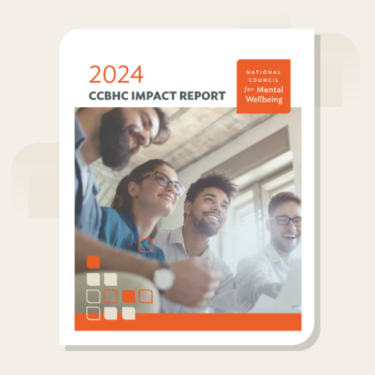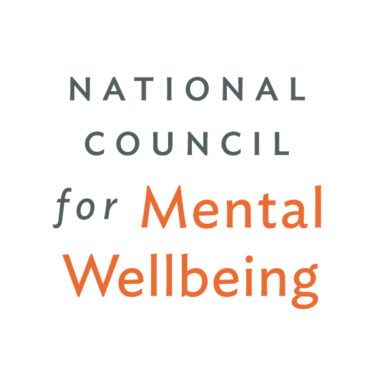FOR IMMEDIATE RELEASE
Contact:
Sophia Majlessi
SophiaM@TheNationalCouncil.org
(202) 621-1631
New Polling Shows Need for Immediate Congressional Action to Avert Collapse of Behavioral Health Organizations and Resulting Public Health Crisis
WASHINGTON, D.C. (September 9, 2020) – Demand for mental health and addiction treatment services has increased significantly just as the COVID-19 pandemic continues to weaken the financial viability of behavioral health organizations and reduce the availability of lifesaving treatment and services, according to new polling released by the National Council for Mental Wellbeing.
Key findings from the survey of behavioral health Chief Executive Officers include:
- Demand for behavioral health services is increasing, with 52% of behavioral health organizations seeing an increase in the demand for services;
- Capacity is diminishing as a result of the pandemic, and 54% of organizations have had to close programs while 65% have had to cancel, reschedule or turn away patients; and
- Organizational viability and access to care for millions is at risk of disappearing. Organizations have lost, on average, nearly 23% of their annual revenue, and 39% believe they can only survive six months or less.
“These numbers confirm that, without immediate Congressional action, we are on the verge of a second public health epidemic,” National Council for Mental Wellbeing President and CEO Chuck Ingoglia said. “Just as more and more people are seeking mental health and addiction treatment services, the financial crisis caused by COVID-19 has forced behavioral health organizations to reduce staff and reduce services.”
The Centers for Disease Control and Prevention (CDC) released staggering new data in August showing the impact of the COVID-19 pandemic on the nation’s mental health, particularly for young people. Among people ages 18-24, one in four (25.5%) “seriously considered suicide in the past 30 days,” according to the survey. That translates into 82.5 million young men and women across the country contemplating ending their lives. Furthermore, 40% of U.S. adults reported struggling with mental health or substance use in the prior 30 days, according to the CDC data.
The National Council estimates behavioral health organizations need a $38.5 billion infusion of emergency funds to avert a large-scale public health crisis, with a significant portion of these emergency funds dedicated to organizations enrolled in Medicaid and serving some of the nation’s most vulnerable individuals. The National Council issued a warning regarding the need for funding in April. Since then, the gap between demand for services and the financial viability of organizations to provide service has widened at an alarming rate.
The National Council supports the funding proposal included in legislation recently released by the Senate. The Health, Economic Assistance, Liability Protection and Schools (HEALS) Act includes $4.5 billion in funding for the Substance Abuse and Mental Health Services Administration (SAMHSA).
“Congress and the administration have created dedicated funding streams for critical access hospitals, nursing homes and federally qualified health centers. It’s time to level the playing field and add behavioral health organizations, which are just as critical, to the dedicated funding stream to ensure they can continue to provide care for millions of Americans,” Ingoglia said. “The funding designated to SAMHSA in the HEALS Act will help, but right now our nation needs lawmakers to think bigger. Without significant financial intervention, I fear millions of Americans may not have access to the behavioral health care they need and deserve.”
Morning Consult conducted the polling between August 17-September 1, 2020 among a national sample of 343 NCBH members. The interviews were conducted online. Results from the full survey have a margin of error of plus or minus 5%.
###
About the National Council for Mental Wellbeing
The National Council for Mental Wellbeing is the unifying voice of America’s health care organizations that deliver mental health and addictions treatment and services. Together with our 3,326 member organizations serving over 10 million adults, children and families living with mental illnesses and addictions, the National Council is committed to all Americans having access to comprehensive, high-quality care that affords every opportunity for recovery. The National Council introduced Mental Health First Aid USA and 2 million Americans have been trained.
About The National Council
Founded in 1969, the National Council for Mental Wellbeing is a membership organization that drives policy and social change on behalf of over 3,400 mental health and substance use treatment organizations and the more than 10 million children, adults and families they serve. We advocate for policies to ensure equitable access to high-quality services. We build the capacity of mental health and substance use treatment organizations. And we promote greater understanding of mental wellbeing as a core component of comprehensive health and health care. Through our Mental Health First Aid (MHFA) program, we have trained more than 3 million people in the U.S. to identify, understand and respond to signs and symptoms of mental health and substance use challenges.




